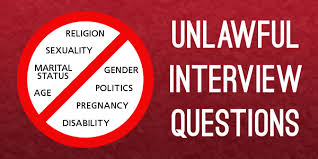Having over 15 years of experience in this field, Vietnam Manpower has deeply known that each country has its own criteria for evaluating the relevancy of a candidate. These criteria may reflect certain etiquette preferences and expectations.

To help you understand these cultural differences and then having better chance for pursuing your dream job, today, we want to share with you some basic guidelines collected in our experiences with clients all over the world. Use these tips as a start:
Dress and appearance: You can't get a second chance to make a first impression and a first impression is made in the first 30 seconds. Do not hesitate to show the interviewer that you understand the style of the position and the company as well as fit the culture is a good start of building trust in the job interview.

There is no a standard interview uniform or outfit that interviewees. Every culture has its own dress code of ethics. In some cultures, the quality and sophistication of your dress is assumed to express your quality and sophistication as a person. In the other, being too well dressed can send an inappropriate message of elitism or arrogance to the recruiters. But if you still not know how to wear, there is a rule: Politely Wearing is a fairly safe choice.
Protocol Variations You Should Know About: Find out in advance how much interviewing formality to generally expect in a particular country before moving on to pinpoint research about the region and the company. It’s important to ensure that all communications are clear and precise. Maybe the tone of the interview may be more or less formal than you’d expect. It’s necessary that the cultural nuances are fully understood or otherwise your business deal can go down in flames.
Interview question and answer: In USA, laws discourage privacy-penetrating questioning that may lead to discrimination.

However, interviewers in some nations have no legal restrictions about the type of personal questions you can ask. For example, the Japanese aren't afraid to ask how much money you earned in the previous job or how large your home is. In China, personal exchanges about children, spouses or other personal information are encouraged and welcomed.

Language: Language fluency is an important factor in cross-cultural adaptability between employees. It's always a smart move to learn several key phrases in their native language to shorten the gap between cultures - it's worth hoping they will appreciate your attempt. If you are not able to speak the language or you don’t do well understanding accents, it’s totally a big obstacle in becoming hired.
The value of educational credentials, certifications, and experience: In some cultures, experiences that can be reflected through diplomas, certificates, and written references.

Experience can be explained through previous schools, previous employers, years of employment, job titles and responsibilities. But in the other hand, for instance, Australians aren't impressed by a title or status -- they expect your work to speak for itself. Or people in most Westernized countries are taught to ‘sell and not tell’ in all kinds of situations in life, including the employment interview to underline advantages and minimize disadvantages.
Preparation is the key to successful interviewing. Understanding as much as you could what the local culture is, what the expectations are of the local companies and its employees.












Replies to This Discussion